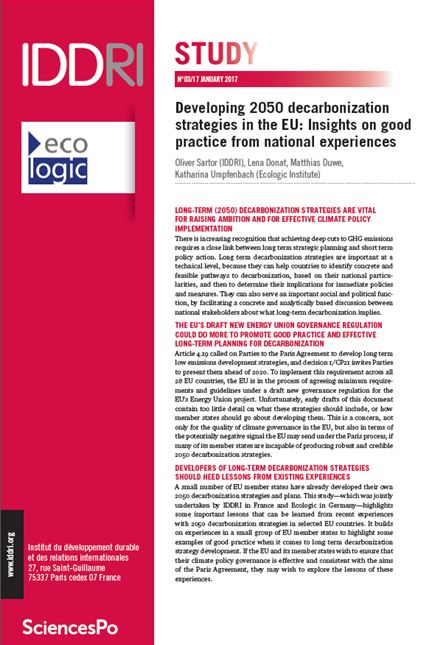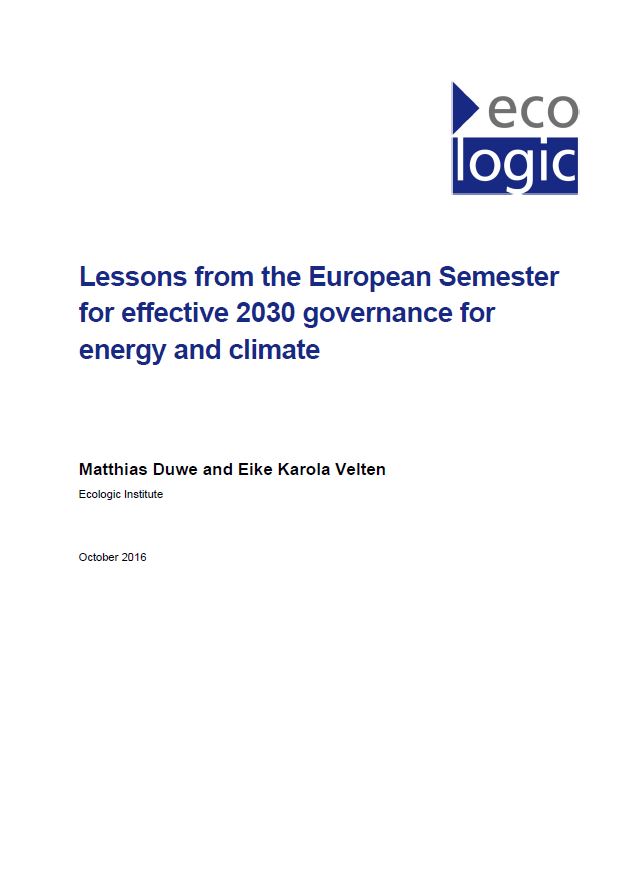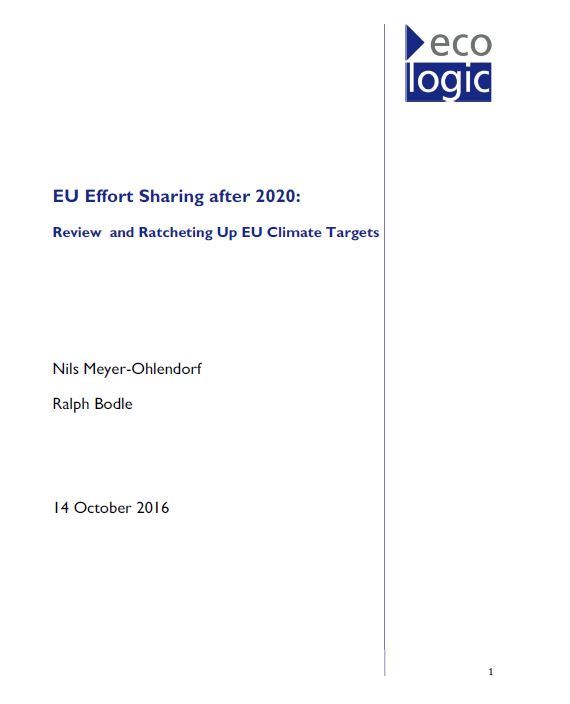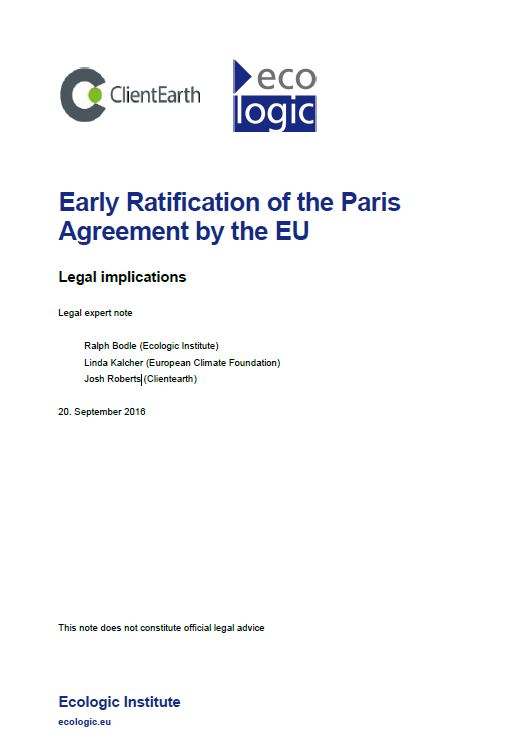A new study by the Ecologic Institute shows how to ensure achievement of the 2030 EU target for renewable energy. The study is available for download.
- Language
-
English
- Authorship
-
Ennid Roberts, LLMTomas Wyns (Vrije Universiteit Brussel)
- Funding
-
European Climate Foundation (ECF), International - Year
- Dimension
- 36 pp.
- Project
- Project ID
- Table of contents
-
Click to show full table of contents
1. Summary
2. Introduction
3. Part A: How to set Member State pledges?
3.1. GDP-based benchmarks
3.2. National RES Weighted Average Cost of Capital (WACC) and investment risk benchmarks
3.3. RES-E preparedness in Member States
3.4. Indicative Reference Values
3.5. Flat-rate increase
3.6. Regional renewables targets
3.7. Measures must contribute to achieving EU target: fit for purpose
3.8. Trajectories and timing
3.9. Legal quality of contributions: Contributions in national energy plans and / or national law?
4. Part B: What happens if Member State pledges are in sum insufficient for meeting the overall EU target or if Member States fail to fulfil their pledged contribution?
4.1. Infringement procedures
4.1.1. General remarks
4.1.2. Infringement procedures for indicative, legally non-binding contributions?
4.1.3. Infringement procedures for ignoring benchmarks?
4.2. Iterative processes: European Semester and similar processes
4.2.1. General remarks
4.2.1.1. European Semester
4.2.1.2. Iterative process under the EED
4.2.1.3. Iterative processes under the RED
4.2.2. Can iterative processes help ensure that contributions add up for EU target achievement?
4.2.3. Iterative processes to ensure that Member States fulfil their contribution?
4.3. EU intervention to de-risk RES investments?
4.4. Conclusions
5. Annex 1 Designing a gap filler: Proposals for legal text
6. Annex 2: Process of the European Semester
7. References - Keywords
-
EU energy governance, 2030 EU renewable energy target, renewable energyEurope




